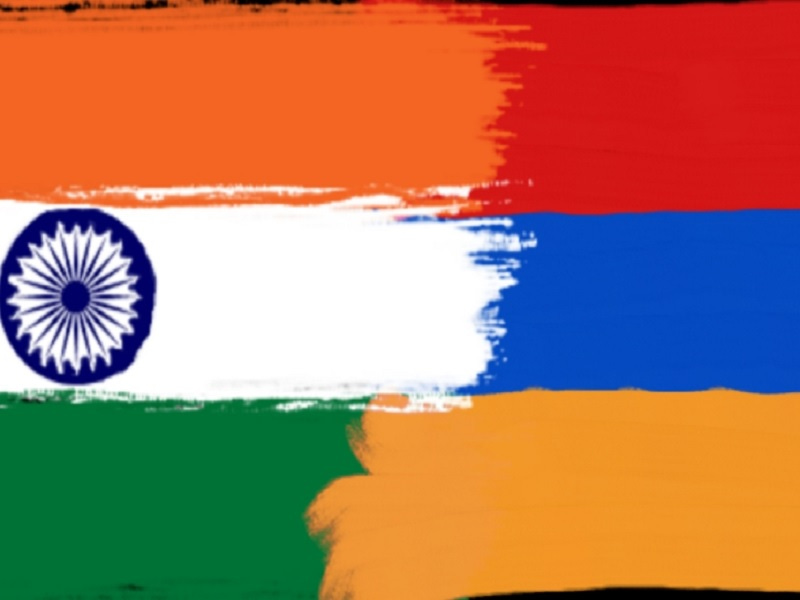It’s Important To Clarify Misperceptions About India’s Policy Towards The South Caucasus
The trend of South Asian rivals India and Pakistan comprehensively expanding relations with South Caucasus rivals Armenia and Azerbaijan naturally invites speculation about each of these four countries’ motives, especially considering the military dimension that’s front and center in each pair of partnerships.
The growing military dimension of the Indian-Armenian partnership has prompted speculation that Delhi has ulterior strategic motives in arming Yerevan. The Cradle, for instance, recently published a piece about “Why India Is Arming Armenia Against Azerbaijan” while Pakistan Observer released its own a few days later declaring that “India Is Fueling Fire By Providing Latest Weapons To Armenia”. Although approached from different angles, both articles nevertheless conclude that India is poised to play an increasingly prominent military-driven role in the South Caucasus, one that’s either lauded or condemned depending on one’s stance. The reality, however, is that this viewpoint is inaccurate.
The trend of South Asian rivals India and Pakistan comprehensively expanding relations with South Caucasus rivals Armenia and Azerbaijan naturally invites speculation about each of these four countries’ motives, especially considering the military dimension that’s front and center in each pair of partnerships. All parties can easily score cheap political points against their opponents by claiming that they’re driven by ulterior motives that will ultimately be to the other side’s detriment. The purpose in doing so is to fan the flames of their long-running information warfare campaigns by misportraying their targets as irresponsible, which is in turn intended to make third countries distrust their motives.
To this end, India is portrayed as militarily supporting aggressive Armenian revisionism in the region while Pakistan is presented as the so-called “hired gun” of a new Turkish-masterminded Muslim alliance. Both over-simplified information warfare narratives deliberately ignore the geo-economic basis behind each South Asian state’s proactive outreaches to their primary South Caucasus partner of choice, which cleverly rely on military initiatives to gain the trust required for privileged economic access. India is interested in expanding the North-South Transport Corridor (NSTC) through Armenia and Georgia while Pakistan wants to expand CPEC through Azerbaijan as part of a related connectivity thrust.
Strategic military cooperation is meant to show South Caucasus decisionmakers that these South Asian states can be relied upon since they’re investing in something as significant as their partner’s national security. While there’s no doubt that each pair of countries conceptualizes this differently and arguably even in contradictory ways, the potential for significant friction between them remains mostly in the sphere of social media since it’s unlikely that either India or Pakistan would play a major role in any possibly renewed round of Armenian-Azerbaijani hostilities. That’s not to downplay their contribution to each country’s national security, but just to point out that they’re nowhere near their primary partners.
India will never play a greater security role for Armenia than Russia does, the same as how Pakistan will never play a greater security role for Azerbaijan than Turkiye. Nevertheless, military cooperation serves to build the trust required for positioning each as privileged geo-economic partners per these South Asian state’s respective connectivity visions. The information warfare dimension connected to each pair’s speculative claims about the other’s motive is mostly only relevant with respect to those four countries’ domestic audiences since no serious outside observer would extend credence to their related accusations unless they had a stake – whether declared or hidden – in fanning one side’s claims.
To summarize, the misperceptions about India and Pakistan’s policy towards the South Caucasus will persist due to the information warfare dynamics connected to their rivalry as well as that of their Armenian and Azerbaijani partners respectively. For as tempting as it may be for some to believe that one or another pair is playing a destabilizing role in that former Soviet region, the fact is that the impact of their military outreaches will remain limited to complementing the much greater role played by Armenia and Azerbaijan’s top Russian and Turkish security partners respectively. India and Pakistan’s real impact on the South Caucasus is connected to their geo-economic visions, not military diplomacy.


